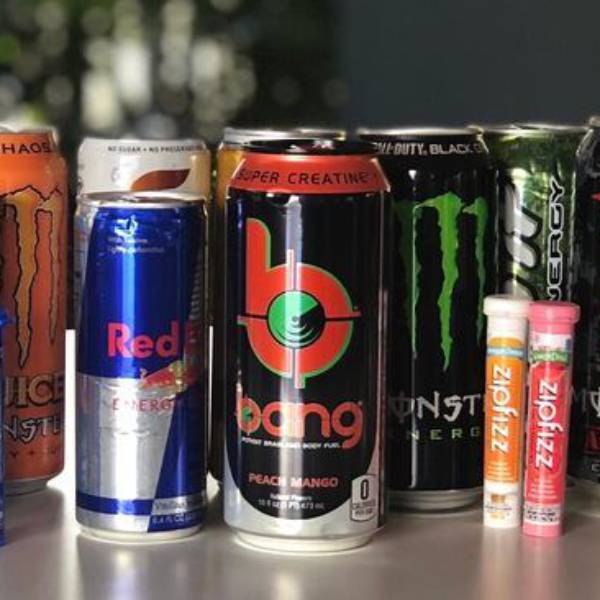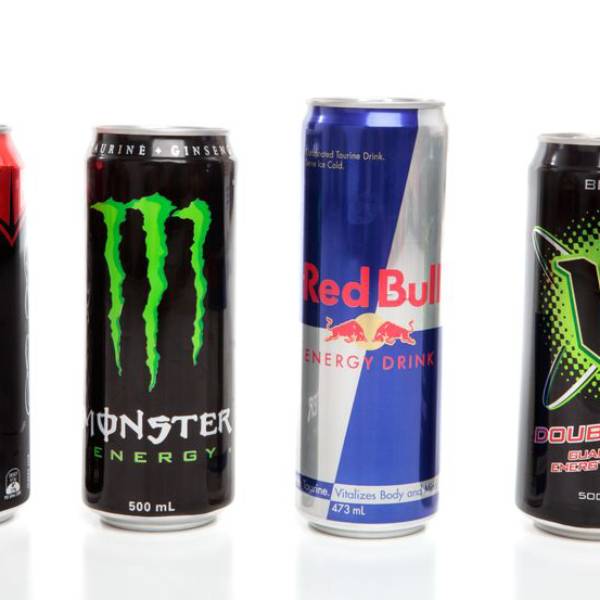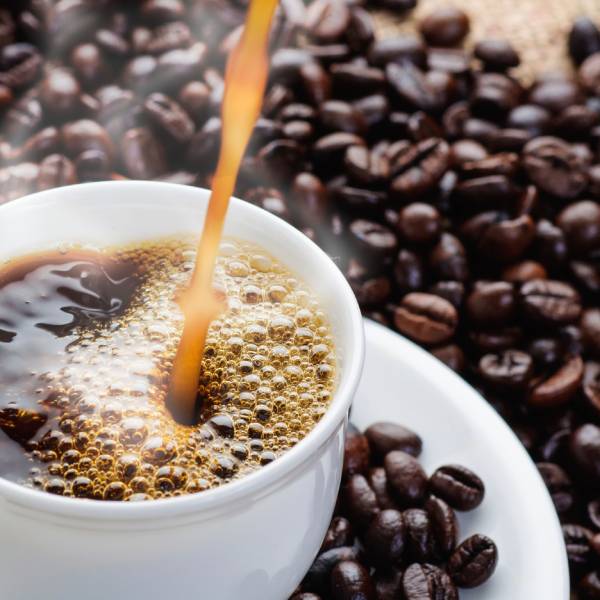Introduction to Energy Drinks with Most Caffeine
Energy drinks have become a staple for many individuals in today’s fast-paced world. People often turn to these beverages to combat fatigue and improve concentration. The promise of heightened performance attracts both students and professionals alike. However, with the growing number of energy drink brands, finding the ones with the highest caffeine content can be daunting. Consumers need to pay attention to labels and reviews to make informed choices. They must also consider their unique tolerance levels since caffeine affects everyone differently. Moreover, an increase in caffeine consumption may lead to adverse side effects, so moderation is key.

Understanding the Risks
While energy drinks provide a quick boost, users should not ignore potential health risks. Excessive caffeine can trigger anxiety and sleep disturbances. For some people, high caffeine intake leads to rapid heart rates and jitters. Therefore, it is crucial to consume these drinks mindfully. Furthermore, energy drinks often contain added sugars and other stimulants, complicating their effects. Consequently, consumers should research each product thoroughly before purchasing. Seeking healthier alternatives, like herbal teas or even water, may provide sustained energy without adverse effects. Ultimately, being aware of caffeine content helps individuals make better decisions, balancing energy needs with health considerations.
The Rising Demand for Energy Drinks with Most Caffeine
The surge in demand for energy drinks with high caffeine content reflects our fast-paced society. Many young adults face busy lifestyles, which leave little time for rest. They often seek quick energy boosts to help them cope with demanding work schedules. As a result, energy drink manufacturers have increased their production of high-caffeine options. These drinks have become ubiquitous in college campuses and workplaces, appealing to those wishing to maximize productivity. Young adults believe that consuming these drinks can enhance their focus and stamina, but this may not always be true.
Health Concerns Associated with Energy Drink Consumption
The trend toward high-caffeine energy drinks raises significant health concerns. Many people underestimate the potential side effects of excessive caffeine intake. Symptoms such as anxiety, insomnia, and heart palpitations often accompany high consumption. Additionally, these drinks frequently contain other stimulants, which can exacerbate negative effects. Researchers warn that mixing energy drinks with alcohol can also lead to dangerous behaviors and health issues. While consumers enjoy the short-term benefits, they may overlook long-term consequences.
Therefore, it is crucial to educate young adults about the risks associated with energy drinks. As awareness spreads, individuals can make better choices and prioritize their health. Balancing energy needs with well-being should be a collective goal moving forward. Industry stakeholders must also consider their responsibility in promoting safe consumption habits. By fostering a culture of moderation, we can strive to reduce health risks while meeting the energy demands of our generation.

Popular Brands of Energy Drinks with Most Caffeine
Leading Brands in the Energy Drink Market
Several noteworthy brands dominate the energy drink market. Bang, Reign, and Monster offer various choices that appeal to consumers. Each brand features high caffeine content, which attracts energy-seeking individuals. For instance, Bang contains around 300 mg of caffeine in a 16-ounce can. Reign matches this with its own 300 mg of caffeine in its signature flavor. Monster, while traditionally popular, offers a variety of formulas that include both high and moderate caffeine levels. These brands stand out due to their commitment to providing energy boosts. They target athletes, busy professionals, and anyone needing an energy lift.
Consumer Preferences and Trends
Consumer preferences in the energy drink industry continuously evolve. More people prioritize high caffeine options to enhance their performance. Many consumers also look for specific ingredients that support energy and recovery. Brands like Bang and Reign capitalize on this trend by incorporating electrolytes and BCAAs. These additional ingredients appeal to fitness enthusiasts seeking more than just caffeine. Moreover, brand marketing plays a crucial role in attracting customers.
Eye-catching designs and bold flavors enhance brand visibility. Consumers often choose their favorite energy drinks based on flavor and packaging. As health trends emerge, brands adapt and innovate. They now offer caffeine-free options and natural ingredients, appealing to a broader audience. The energy drink market remains competitive, focusing on consumer needs and preferences. Brands that successfully adjust will continue to thrive and attract dedicated followers.
Effects of Energy Drinks with Most Caffeine
Benefits of Energy Drinks
Energy drinks with high caffeine content offer a significant boost of energy. Many users feel this surge improves their alertness during daily activities. Athletes especially find these drinks beneficial for enhancing physical performance. They often report increased stamina and better endurance during workouts. This heightened energy can help users push through tough training sessions. Furthermore, caffeine can elevate mood and motivate individuals to engage in physical tasks. Many people appreciate this mental and physical edge while exercising. As a result, energy drinks have gained popularity among fitness enthusiasts. The immediate benefits create an appealing option for anyone needing a quick pick-me-up.
Considerations and Risks
Despite their advantages, energy drinks also come with potential drawbacks. Users should consider the short-lived nature of caffeine’s effects. Many people experience jitters that can lead to feelings of anxiety. This anxiety can impede focus and disrupt normal functioning. Furthermore, insomnia becomes a common issue for regular consumers. Frequent use can lead to caffeine dependence and withdrawal symptoms. Users might find themselves needing more caffeine to achieve the same level of alertness.
Additionally, some individuals experience heart palpitations or headaches after consumption. These negative effects can overshadow the initial benefits. Therefore, moderation remains crucial for anyone considering energy drinks. Balancing consumption and being aware of one’s limits can help maximize benefits while minimizing risks. Users should think critically about their caffeine intake and its impact on their health.

Health Risks Associated with Energy Drinks with Most Caffeine
While energy drinks with most caffeine promise quick energy, they also pose certain health risks. Excessive caffeine intake may lead to heart palpitations or high blood pressure. Furthermore, younger people may be more susceptible to these risks. Many energy drinks contain sugar, which adds to the health concerns. The combination can result in weight gain and other metabolic issues.
Responsible Consumption of Energy Drinks with Most Caffeine
For those who choose to consume energy drinks with most caffeine, moderation is key. It’s crucial to understand one’s own caffeine tolerance. Health experts generally recommend limiting intake to 400 mg of caffeine per day for most adults. Staying hydrated with water is essential, especially when consuming these beverages. Additionally, balancing energy drinks with nutritious food can help mitigate side effects. When considering Prime Energy Drinks, be mindful of their caffeine content and ensure moderation to maintain health and well-being.
Alternatives to Energy Drinks with Most Caffeine
While energy drinks with most caffeine are popular, other options exist. Natural alternatives, like coffee or tea, provide caffeine and additional health benefits. Green tea, for example, contains antioxidants and may enhance metabolism. Smoothies made with natural ingredients like bananas and spinach can also boost energy. Exploring these options may lead to healthier energy-boosting habits. Choosing natural energy sources is crucial; beware of the worst energy drinks for you that may contain excessive sugar and unhealthy additives.
Energy drinks with most caffeine attract many consumers seeking a quick energy boost. However, understanding the implications of high caffeine consumption is vital. Being informed can help consumers make better choices. Ultimately, while these beverages can enhance energy levels, moderation and awareness should guide consumption. Balancing energy needs with health concerns is the best approach. Through careful selection and responsible use, individuals can enjoy the benefits of caffeine without compromising their health. When considering the worst energy drinks, it’s essential to recognize their high caffeine content and the potential health risks associated with excessive consumption.